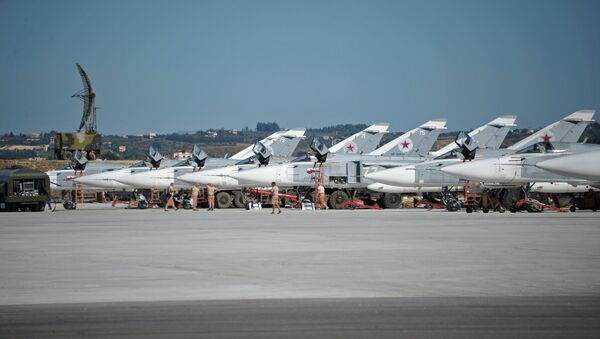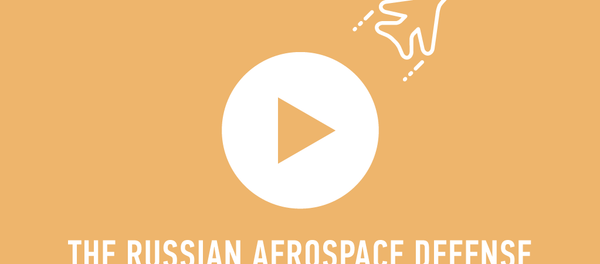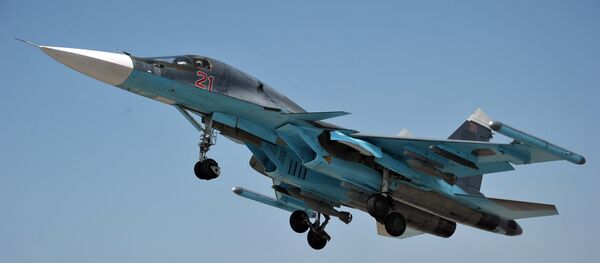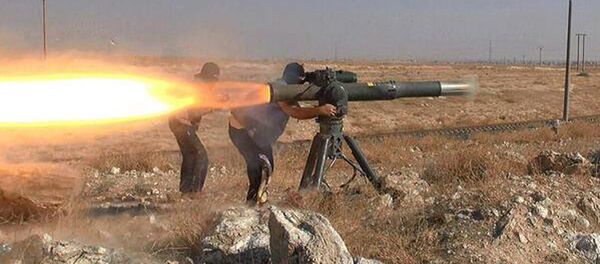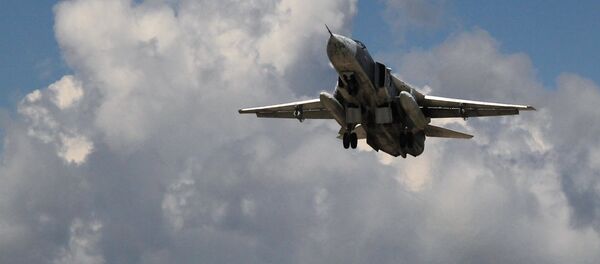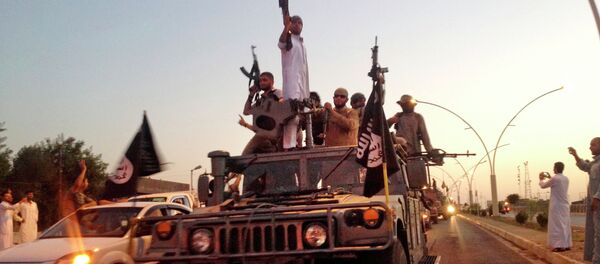Since the beginning of the operation, Russian forces have flown over 2,300 combat sorties and destroyed over 4,100 terrorist targets, with the Syrian Arab Army and allied forces going on the offensive across several fronts.
Throughout October, the media focused a great deal of its attention not only on the professionalism and accuracy of the air campaign, but also on the surprising capabilities of the Russian Kalibr-NK cruise missiles, launched from small ships in the Caspian Sea, flying over Iran and Iraq to reach their targets in Syria.
November, unfortunately, saw the first casualties of the operation, and not from the terrorists, but from Turkey, which shot down a Su-24M bomber over Syria on November 24th, resulting in the death of the plane's pilot and that of a Russian naval infantryman in the course of operations to rescue the co-pilot. Russian President Vladimir Putin called Turkey's actions "a stab in the back," with Foreign Minister Sergei Lavrov adding that the attack appears to have been a "pre-planned provocation."
Consequently, on Monday, a spokesman for the Russian Aerospace Defense Forces confirmed that for the first time since the start of the operation, Russia's Su-34 bomber jets conducting strike operations were being armed with short- and medium-range air-to-air missiles to protect them in case of air attacks.
Following confirmation that the Russian plane which crashed in Egypt in late October had been destroyed by terrorists, Russian forces in Syria were strengthened by sorties from long-range strategic bombers operating from inside Russia, including Tu-160, Tu-95MS, and Tu-22M3 bombers, with forces in Syria strengthened by a contingent of Su-34 and Su-27 fighter bombers, complementing the Su-24, Su-25, Su-34, Su-30 and Mi-24 aircraft operating in the country. Meanwhile, on Monday, Syrian media covering the rescue of the downed Su-24's copilot appear to have spotted several Russian Ka-52 and Mi-28N attack helicopters in the vicinity of the Hmeymim airbase, suggesting that the defense ministry has introduced forces in addition to those officially announced.
Assessing the operation thus far, Russian Defense Minister Sergei Shoigu recently emphasized that Russia has assisted "successful operations by Syrian government troops in the areas of Aleppo, Idlib, in mountainous Latakia, and Palmyra," adding that the number of terrorists entering the country is on the decline.
Successes & Challenges
Commenting on the successes and challenges of the operation for Russia's Svobodnaya Pressa newspaper, Sergei Balmasov, a senior analyst at the Center for the Study of the Crisis of Society, emphasized that prior to the Russian intervention, Syrian Army forces had been on the defensive, attacked from all sides by dozens terrorist and rebel groups operating in Syria and their foreign backers.
"The attempt to shift to the offensive – this is the main change in the Syrian front which occurred after September 30th," Balmasov explained, commenting on the main accomplishment of the Russian operation to assist Syrian forces so far.
Citing the analysis of Jane's Terrorism & Insurgency Center, the analyst noted that the Syrian Army, supported by Hezbollah, Iranian volunteer forces and Shiite militias in Iraq, "has managed to free a little more than.4% of the territory of Syria" in the 60 days since the start of the operation. "In this sense, we are talking at this point not about strategic, but tactical successes. Among them are the liberation of the Kowaires airbase, and the cleanup operations in the area."
The expert explained that "the government offensive continues, but slowly and with great difficulty. Major strategic breakthroughs have yet to be made, and judging by the militants' counterattacks, it appears that the opposition still has plenty of human resources and weapons."
According to the expert, one of the serious problems which continues to face the Syrian Arab Army is heavy losses of armored vehicles, in large part due to the provision of effective anti-tank systems to the militants by President Bashar Assad's regional and international opponents. Balmasov believes that, financial resources allowing, the army would do well to equip its tanks with active protection systems (APS), designed to shield tanks from anti-tank projectiles.
Ultimately, Balmasov believes that while there are risks that Russia may be pulled even further into the conflict, considering Syria's alliance with Iran, "it would be logical to see that Tehran strengthens its own military presence in Syria first." Even more than Moscow, Iran's leaders are terrified at the prospects of seeing Sunni fundamentalism spread through Syria and Iraq.
According to Svobodnaya Pressa journalist Anton Mardasov, the closing of the Syrian-Turkish border, "specifically, the 98 km corridor in the area near Jarabulus, through which fighters in Syria receive weapons, ammunition, funds and warm bodies," is one of the key challenges in the ongoing conflict.
The journalist suggests that Secretary of State John Kerry's announcement earlier this month that the US and Turkey would carry out a 'joint military operation' to close off the Syrian-Turkish border, combined with the shoot down of the Russian Su-24M, and the Turkish military's concentration of forces in the border area "may all indicate Turkey's intention to create a buffer zone in the area, placing refugees there and continuing to supply militants to Syria, as well as protecting their illegal oil business."
Responding to the journalist's analysis, Balmasov noted that Syria and Russia now face "a situation where pro-Turkish militants, including Syrian Turkmen, have already created a de facto autonomy. This corridor, which is in fact just a massive hole in the border, will now be extremely difficult to close. Ankara will have every opportunity to create a buffer zone here. Moreover, Erdogan has already demonstrated his willingness to continue to engage."
"At the moment, we cannot speak about an end-date for the operation, given that despite an escalation of attacks by the Russian forces, the advance has been rather sluggish. Nevertheless, there have been some important successes, such as the freeing of the Kowaires airbase, the liberation of a substantial section of the Aleppo-Damascus highway, and the army's successes in holding off terrorist counterattacks in this area."
Murakhovski emphasized the importance of the situation on the Turkish-Syrian border, noting that while "it remains under the control of the insurgents, mercenaries and arms will flow into Syria, with trucks loaded with barrels of oil flowing in the opposite direction," will continue.
The expert noted that Russian air attacks on Daesh-controlled oil infrastructure, including tankers, refinery and production facilities are directly connected "to the sharp discontent of Turkish authorities –hence the attack on our Su-24M bomber."
"It is clear," Murakohovski noted, "that over the last few weeks we have really begun to hit the Islamists in their most sensitive points, disrupting their financial and economic base and smashing the prospects for the continued existence of the so-called 'caliphate'. I think that in the future, our forces will continue to strike at these pressure points, while simultaneously supporting, as much as possible, the advance of the Syrian army in several areas –particularly in the provinces of Homs, Hama, Idlib and Latakia, and to a lesser extent, toward Al-Raqqah [Daesh's de facto Syrian capital] and other settlements to the east."
Facing the largest concentration of radical jihadists the world has seen since the Soviet War in Afghanistan, and exhausted by over five years of brutal warfare, it would be difficult to expect the bloodshed to end any time soon, with forces in Ankara appearing to have doubled down in their efforts to prolong the war.
